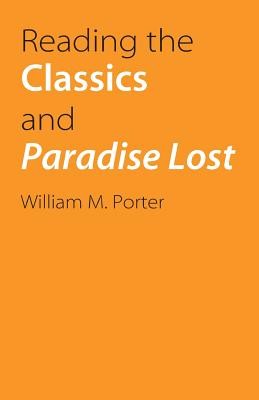
- We will send in 10–14 business days.
- Author: William Porter
- Publisher: University of Nebraska Press
- ISBN-10: 0803222343
- ISBN-13: 9780803222342
- Format: 14 x 21.6 x 1.3 cm, minkšti viršeliai
- Language: English
- SAVE -10% with code: EXTRA
Reviews
Description
Milton's early commentators-Henry Todd, Thomas Newton, Joseph Addison, and others-not only knew their classics well, they took them seriously as models of literary excellence and repositories of values. In the twentieth century, however, the classics have become mere "background." As a consequence, William M. Porter argues, not only is the foundational dimension of Milton's poetry now hardly visible, even to scholars, but the potential of Milton's poetry to revitalize the reading of the classics has been diminished. In this insightful study, Porter attempts once again to read both the classics and Milton's epic poem sensitively and intelligently. He exposes the recklessly speculative and tendentious character of much earlier work on Milton's allusions, in which allusions were promiscuously posited and in which Paradise Lost was too often regarded naively as triumphing over the classics. Porter demonstrates that Milton's allusions, in which allusions to the classics, while fewer than has been supposed, are rich with wit, irony, and thought that can be grasped only by a reader with a double perspective. William M. Porter, recipient of the CML Incentive Award for Outstanding Scholarship in 1985, is an associate professor of classical languages at the University of Houston. He has published articles in such journals as Classical and Modern Literature, Comparative Literature, and Rhetorica.
EXTRA 10 % discount with code: EXTRA
The promotion ends in 22d.13:48:46
The discount code is valid when purchasing from 10 €. Discounts do not stack.
- Author: William Porter
- Publisher: University of Nebraska Press
- ISBN-10: 0803222343
- ISBN-13: 9780803222342
- Format: 14 x 21.6 x 1.3 cm, minkšti viršeliai
- Language: English English
Milton's early commentators-Henry Todd, Thomas Newton, Joseph Addison, and others-not only knew their classics well, they took them seriously as models of literary excellence and repositories of values. In the twentieth century, however, the classics have become mere "background." As a consequence, William M. Porter argues, not only is the foundational dimension of Milton's poetry now hardly visible, even to scholars, but the potential of Milton's poetry to revitalize the reading of the classics has been diminished. In this insightful study, Porter attempts once again to read both the classics and Milton's epic poem sensitively and intelligently. He exposes the recklessly speculative and tendentious character of much earlier work on Milton's allusions, in which allusions were promiscuously posited and in which Paradise Lost was too often regarded naively as triumphing over the classics. Porter demonstrates that Milton's allusions, in which allusions to the classics, while fewer than has been supposed, are rich with wit, irony, and thought that can be grasped only by a reader with a double perspective. William M. Porter, recipient of the CML Incentive Award for Outstanding Scholarship in 1985, is an associate professor of classical languages at the University of Houston. He has published articles in such journals as Classical and Modern Literature, Comparative Literature, and Rhetorica.


Reviews